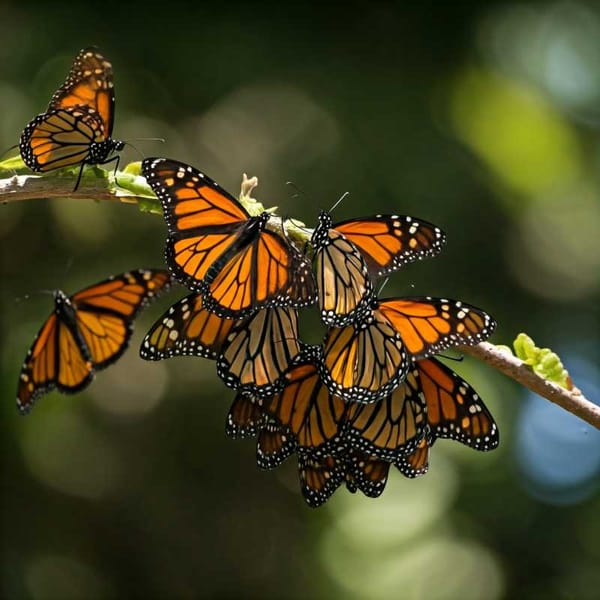Biologists, essential to ensure the viability of the human species
The knowledge generated by biologists is integrated in several of the country's regulations. Thanks to their training in research, prevention and control, they contribute to the task of curbing the SARS-CoV-2 virus.

Estimating risk, establishing priorities for action, as well as developing remediation and restoration measures, is part of the work carried out by biology professionals, who play a key role in the fight against COVID-19. Biologists interact with professionals from other areas: engineers, lawyers, chemists, economists and anthropologists, among others. They contribute to the solution of some of the problems of cities, such as pollution, environmental protection, management of natural areas and green zones.
The work of biologists is fundamental in a country like Mexico to take advantage of its natural resource potential. The research carried out by biologists in multiple specialties focuses on the functioning of organisms and living systems, with immediate applications in medicine, restoration and environmental management. Thanks to their experience and training in areas such as research, prevention and control, among others, they contribute to the task of curbing the SARS-CoV-2 virus.
Comparative biology has a role to play in this, which means recognizing that there are variants of a microorganism, from which specialists reconstruct the evolutionary history. What Darwin suggests is that there is a process of descent with modification; that is to say, characters are inherited from parents to children, in the same way the SARS-CoV-2 virus leaves descendants and some of them leave the original pattern, the famous alpha, beta, gamma, delta and now omicron variants.
Even the language of evolutionary experts has permeated the health sector; at expert conferences, one often hears talk of clades (phylogenetic branch consisting of an original species and its descendants), which represent lineages in the evolution of the virus. The research activity of evolutionary biologists is essential in this reconstruction.
Many virologists, biologists by training, are interested in aspects of biomedicine and try to understand the difference between variants of viruses, whose structure can be RNA or DNA. This entire field of knowledge is applied in the fight against the pandemic. Despite these capabilities of life scientists (in their various specialties), there are not enough job opportunities for those who graduate from university classrooms. National Biologist's Day is celebrated on January 25.
On January 25, 1961, scientists from the National Polytechnic Institute created the College of Biologists of Mexico, and since then, these professionals are celebrated every year. Much of the knowledge generated by biologists in the country has been incorporated into statutes such as the General Law of Ecological Balance and Environmental Protection, as well as in Official Standards for the Prevention and Integral Management of water or waste.
This is another of the great contributions of these professionals; the idea is to make rational use of natural resources and the environment, guaranteeing their conservation, because the viability of the human species depends on it. If we destroy natural resources, make indiscriminate use of fossil fuels and any situation that continues to increase greenhouse gases and contribute to global warming, we would be committing suicide.
Biologists in the country
According to INEGI's National Occupation and Employment Survey, corresponding to the first quarter of 2020, in Mexico there are just over 333 thousand people over 20 years of age with academic training in Biology (79 percent); Physics (seven percent) and Chemistry (14 percent). Of these, 55 percent are women and 45 percent are men. Each year, approximately 150 biologists graduate from the classrooms of FES Zaragoza, a university entity that serves an enrollment of a little more than 1,600 students in various semesters of this degree.
Statistical data from the General Directorate of School Administration of the National University indicate that during the 2020-2021 school year, 60 percent of the total number of first-time students entering this option at UNAM will be women and 40 percent men. The degree is offered at the faculties of Estudios Superiores Zaragoza and Iztacala, as well as at the Faculty of Sciences.
Some subjects related to administrative management and the legal framework are taught, which will be useful in case they decide to join entrepreneurship initiatives both in the private sector and in social enterprises related to their area of study. The tendency is to provide the graduate with tools so that he/she can develop an adaptive work plasticity, although most biologists are usually involved in teaching and, to a lesser extent, in research.
FES Zaragoza graduates who are not dedicated to teaching or research work in the public sector, in institutions such as the Ministries of Environment and Natural Resources, and Foreign Affairs, as well as in the National Commission for the Knowledge and Use of Biodiversity. Or, as environmental experts in federal and state prosecutors' offices.
Others collaborate in the area of ecosystem management to establish or assign priorities for action in general, propose containment measures and, in some cases, design remediation and even restoration strategies, in addition to generating guidelines for public policies.
Source: UNAM




